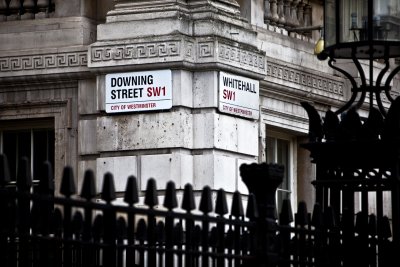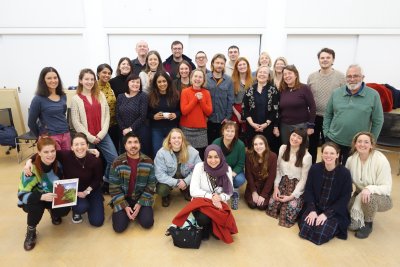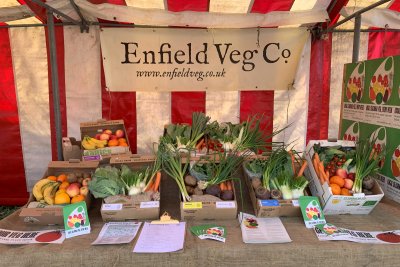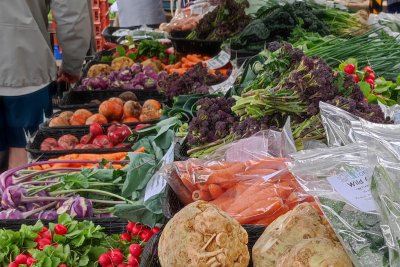After the General Election July 4th, food partnership coordinators came together to discuss opportunities as well as challenges arising from the new Government. This blog summarises reflections as well as an assessment of progress since the General Election.
The recent General Election resulted in a titanic shift towards Labour. Out of a total of 650 Westminster MP seats, 411 are now Labour. There was a resurgence among Liberal Democrats (72 seats) while the Scottish National Party lost 39 seats, bringing their total from 48 seats won at the previous election to nine.
More than half of all MPs are new to Westminster i.e. they have never held a seat. Food partnership coordinators recognised that food and farming are undervalued in political mindsets and policies and many MPs in rural seats come from urban backgrounds. This highlights an opportunity for food partnerships and other organisations for engaging new MPs and build relationships, so they become advocates for the issues and policies we care about as a good food movement. This is even more important if they are a Minister on a food-related theme, sitting in a relevant Select Committee or All Party Parliamentary Group (APPG).
These opportunities should be seen against a backdrop of a challenging funding situation for some food partnerships and the need to prioritise local coordination and engagement of local stakeholders. Local and regional/national influencing are not mutually exclusive. On the contrary, the SFP network has power in numbers: we have the hive mind of knowledge and are well placed to show what is possible. Food partnerships are experts in convening local stakeholders, for example through Food Summits which offer a great opportunity for MPs and other policy-makers to connect with communities. Check useful tips and tools for engaging with your MPs in our toolkit.
Addressing child poverty
A new taskforce on child poverty was seen as a welcome new development by several food partnership coordinators. The Work & Pensions Secretary and Education Secretary will lead a new ministerial taskforce aimed at promptly implementing the child poverty strategy. The taskforce will explore ways to enhance children's opportunities and well-being by looking at levers such as household income, employment, housing, children’s health, childcare, and education.
Labour made several promising pledges in its election manifesto and campaign, including ‘the healthiest generation of children ever’ and ‘end mass dependency on emergency food parcels’. However, the realities of a weak economy, high levels of public debt, high levels of inequality and a cost of living crisis is hitting home. The Chancellor, Rachel Reeves, has already made it clear budget responsibility will be a core feature of this Government. This was signalled in swift action to curb the amendment to the two child benefit cap.
On a more positive note, the Government has extended the Household Support Fund for another six months. Government has also brought forward a consultation on expanding Healthy Start to people with No Recourse to Public Funds (NRPF) closing 23 October – something that Sustain, Sustainable Food Places members and a wider network of local and national organisations have long been calling for. However, lots more needs to be done to improve this important lifeline for pregnant mothers and infants to access healthy food including milk, fruit and vegetables. Given the low levels of uptake, auto-enrolment should be at the forefront of changes to the scheme, followed by increase in levels of payments. Levels of payments are already higher and people on NRPF are already included in the equivalent Best Start scheme in Scotland.
This illustrates the potential for cross-pollination between Westminster and Nation Governments, now that Labour is in power in both Westminster and the Senedd and is no longer a fringe political force in Scotland when it comes to Scottish MPs in Westminster. This new dynamic was at play already in the first week of the new Government, when Keir Starmer met the First Minister of Wales Vaughan Gething and the First Minister of Scotland John Swinney.
Planning reforms
A Planning and Infrastructure Bill announced by Labour will accelerate the delivery of high-quality infrastructure and housing through planning reform. Measures include fair compensation for compulsory purchase, modernising planning committees, and enhancing local planning authorities' capacities. With big plans at play on housebuilding, the danger is that other land uses we care about including community food growing spaces, or peri-urban farming will be seen as secondary to this main goal.
A consultation on changes to National Planning Policy Framework (which sets out planning policy across the country) is now open until 24 September. While there is a big focus on housing, it does show a greater focus on health including looking at ‘more consistent approaches to controlling hot food takeaways near schools'.
We produced resources to support your response to the consultation.
You might also be interested in the upcoming webinar Unlocking the Power of Planning in England, a session for food partnerships and other organisations to better understand and influence the English planning system.
Children’s food
Labour pledged bringing in the 9pm watershed and online advertising restrictions for unhealthy food and drink and banning the sale of high-caffeine energy drinks to under 16’s. However, there was no mention of banning 'buy one get one free' promotions of unhealthy food or expanding the Soft Drinks Industry Levy to a wider range of food and drinks.
Under a new Children's Wellbeing Bill, this Government pledged to introduce free breakfast clubs in every primary school. While this is a positive step, it does not go far enough. No single policy that can deliver on its own and a comprehensive child health strategy is very much needed to use all possible levers of change including healthy school food for all, more honest labelling, incentives for a healthier food industry, action on early years infant feeding and expansion of nutritional lifelines such as Healthy Start and School Fruit and Vegetable Scheme.
English devolution
A new English Devolution Bill was announced which will grant new powers to metro mayors and combined authorities to support local growth plans and bring economic benefits to communities. The Bill also introduces a community ‘right to buy’ for assets such as empty shops. This opens the possibility for communities to take ownership of spaces to open projects such as community kitchens and other community projects selling healthy and sustainable food. Angela Rayner, the new Secretary of State for Levelling Up, Housing, and Communities, has written to council leaders without devolved responsibilities to offer them the opportunity for greater autonomy, and met with Metro Mayors alongside the Prime Minister in the first week of the New Government.
We have explored how food was on the menu at the last local elections and explored the growing power and influence of metro mayors at a previous blog and learning session.
Generally, food partnership coordinators felt that it's important to engage not only with MPs but metro mayors, but where capacity is lacking from individual food partnerships, lean on the wider network to make the most of opportunities. The forthcoming SFP Day of Celebration and Action can be our moment to combine many of these actions and show that we have the solutions to the biggest threats faced by our country - climate, poverty, economic decline and polarisation of communities.
Engaging with your MPs toolkit
Sign up to webinar Unlocking the Power of Planning in England
Credit: Stuart Monk | shutterstock
Sustainable Food Places: The Sustainable Food Places Network helps people and places share challenges, explore practical solutions and develop best practice on key food issues, so if you are working to drive positive food change or are interested in developing a programme, please do get in touch.








